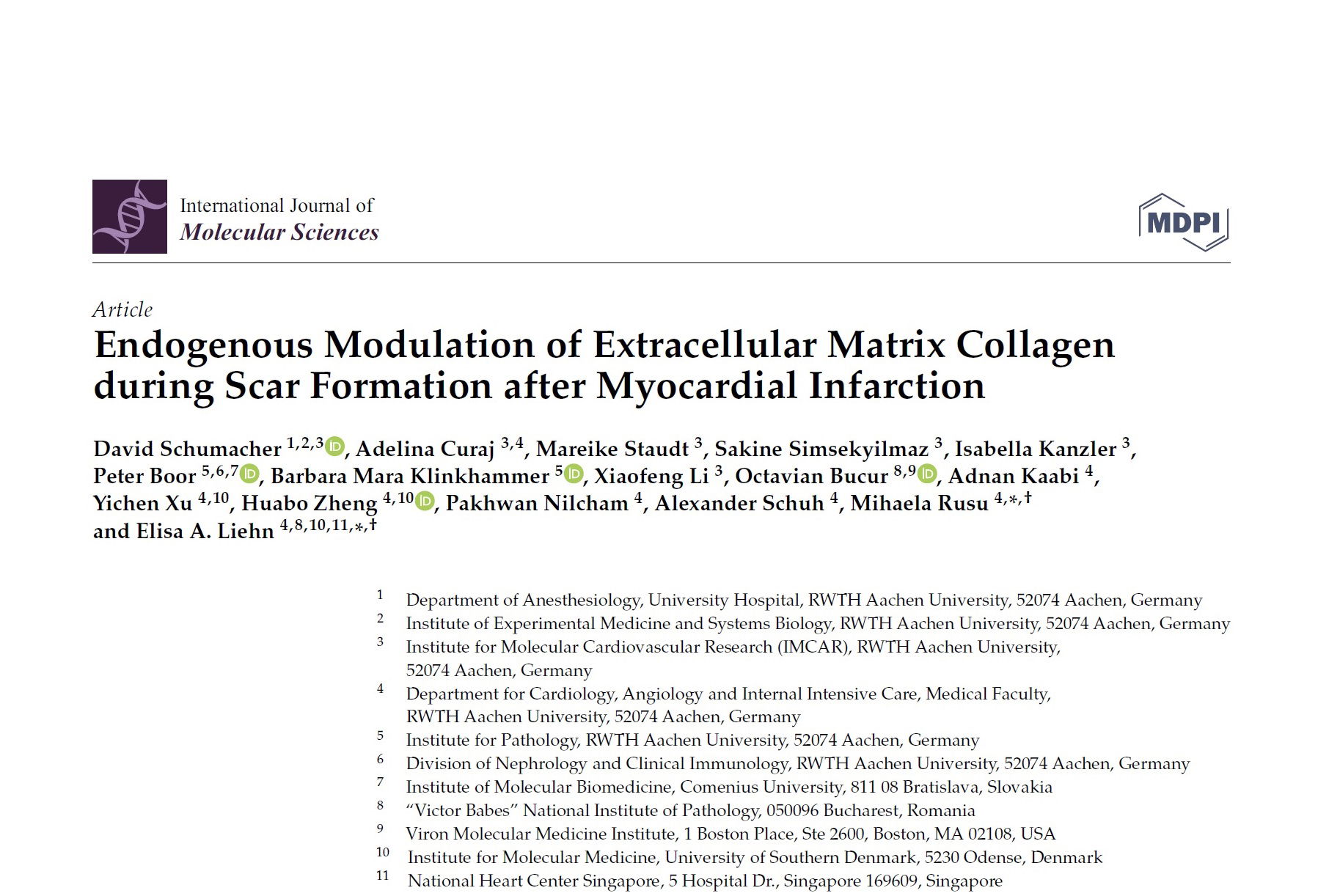Original manuscript published by Elisa Liehn & Octavian Bucur in IJMS (IF 6,208)

Schumacher D (...), Bucur O (...), Liehn EA. Endogenous Modulation of Extracellular Matrix Collagen during Scar Formation after Myocardial Infarction. Int J Mol Sci. 2022 Nov 23;23(23):14571.
ABSTACT
Myocardial infarction is remains the leading cause of death in developed countries. Recent data show that the composition of the extracellular matrix might differ despite similar heart function and infarction sizes. Because collagen is the main component of the extracellular matrix, we hypothesized that changes in inflammatory cell recruitment influence the synthesis of different collagen subtypes in myofibroblasts, thus changing the composition of the scar. We found that neutrophils sustain the proliferation of fibroblasts, remodeling, differentiation, migration and inflammation, predominantly by IL-1 and PPARγ pathways (n = 3). They also significantly inhibit the mRNA expression of fibrillar collagen, maintaining a reduced stiffness in isolated myofibroblasts (n = 4-5). Reducing the neutrophil infiltration in CCR1-/- resulted in increased mRNA expression of collagen 11, moderate expression of collagen 19 and low expression of collagen 13 and 26 in the scar 4 weeks post infarction compared with other groups (n = 3). Mononuclear cells increased the synthesis of all collagen subtypes and upregulated the NF-kB, angiotensin II and PPARδ pathways (n = 3). They increased the synthesis of collagen subtypes 1, 3, 5, 16 and 23 but reduced the expression of collagens 5 and 16 (n = 3). CCR2-/- scar tissue showed higher levels of collagen 13 (n = 3), in association with a significant reduction in stiffness (n = 4-5). Upregulation of the inflammation-related genes in myofibroblasts mostly modulated the fibrillar collagen subtypes, with less effect on the FACIT, network-forming and globular subtypes (n = 3). The upregulation of proliferation and differentiation genes in myofibroblasts seemed to be associated only with the fibrillar collagen subtype, whereas angiogenesis-related genes are associated with fibrillar, network-forming and multiplexin subtypes. In conclusion, although we intend for our findings to deepen the understanding of the mechanism of healing after myocardial infarction and scar formation, the process of collagen synthesis is highly complex, and further intensive investigation is needed to put together all the missing puzzle pieces in this still incipient knowledge process.
CITATION: Schumacher D, Curaj A, Staudt M, Simsekyilmaz S, Kanzler I, Boor P, Klinkhammer BM, Li X, Bucur O, Kaabi A, Xu Y, Zheng H, Nilcham P, Schuh A, Rusu M, Liehn EA. Endogenous Modulation of Extracellular Matrix Collagen during Scar Formation after Myocardial Infarction. Int J Mol Sci. 2022 Nov 23;23(23):14571. doi: 10.3390/ijms232314571. PMID: 36498897.